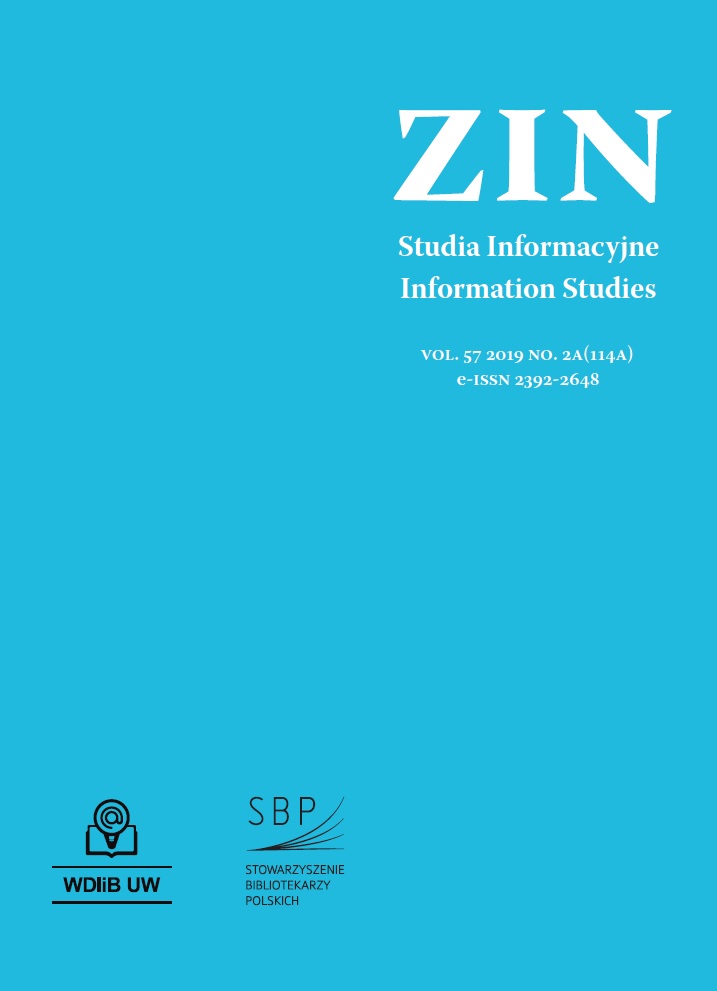Nonlinear Estimation of Similarity Among Scientists’ Disciplinary Profiles. A Case Study
Nonlinear Estimation of Similarity Among Scientists’ Disciplinary Profiles. A Case Study
Author(s): Veslava Osińska, Oleksandr Sokolov, Aleksandra MrełaSubject(s): Library and Information Science
Published by: Wydawnictwa Uniwersytetu Warszawskiego
Keywords: Aggregation norm; Authorship; Disciplinary profiles; Fuzzy logic; Scientometrics; t-SNE plot
Summary/Abstract: Purpose/Thesis: Authors estimate the disciplinary similarity of researchers according to selected academic units with a different cross-section of specializations. The paper presents the model for studying disciplinary diversity of scientific units. The premise of the article is that knowledge of disciplinary profiles of researchers can be applied to create interdisciplinary teams, or one disciplinary team with a focused specializations. Approach/Methods: The approach is based on the visualization and comparison of disciplinary space and space of co-authorship. Fuzzy logic and aggregation norm were used to calculate disciplinary weights of each journal listed in the database. For visualization, new, dimension reduction algorithm t-SNE was applied. Achieved results were verified by using the expert’s knowledge. Results and conclusions: In the evaluation of scientific collaboration, a co-authorship relationship can be complemented by researchers’ disciplinary profiles represented by aggregation norm. Thanks to the continuity of researchers’ publishing activity, the proposed measure based on the disciplinary profile is stable. Research limitations: The sample of both selected teams and journals database is limited. The journals from WoS/Scopus list were considered because analyzed researchers publish articles there. Additionally, during linking these two databases, problems of matching journals titles appeared. Practical implications: The authors proposed a model of evaluating scientists’ disciplinary similarity and further, to estimate the potential of their collaboration. Originality/Value: This approach applies fuzzy logic algorithms to quantifying scientific interests and is another rare instance of practical application of artificial intelligence algorithms (fuzzy logic) in scientometric studies.
Journal: Zagadnienia Informacji Naukowej – Studia Informacyjne
- Issue Year: 57/2019
- Issue No: 2A (114A)
- Page Range: 13-27
- Page Count: 15
- Language: English

